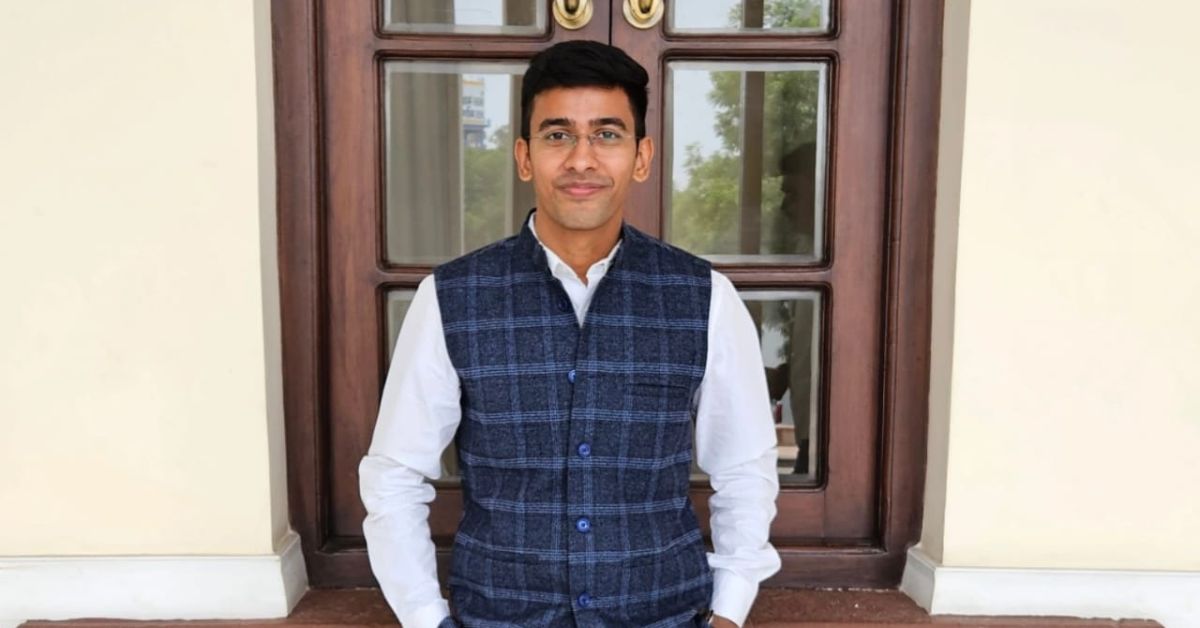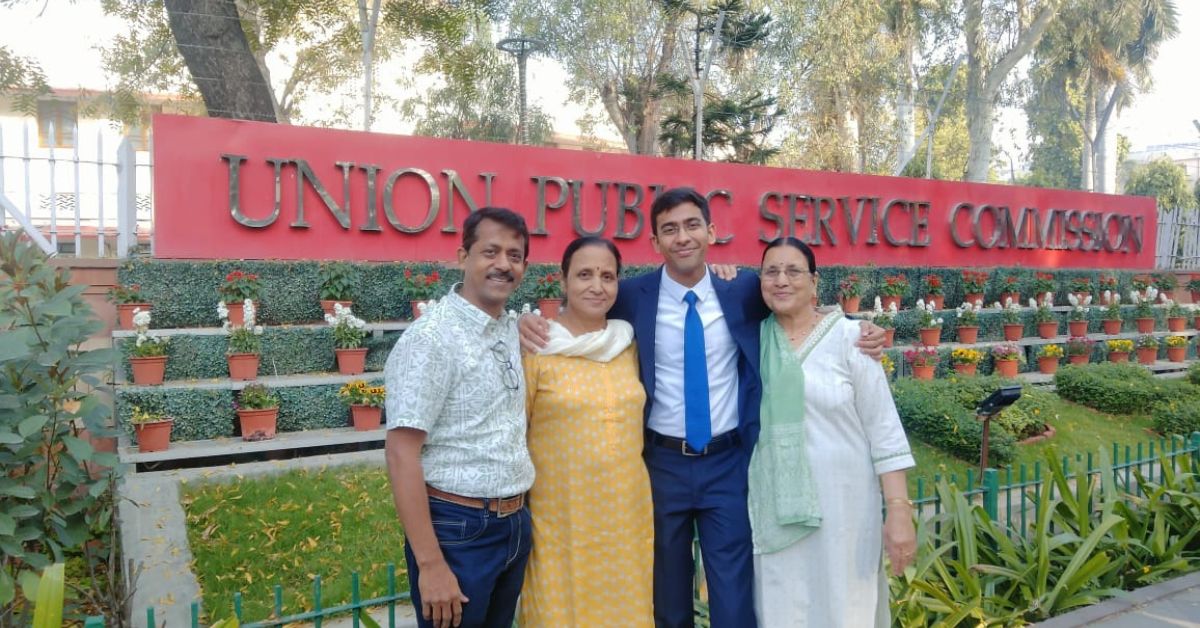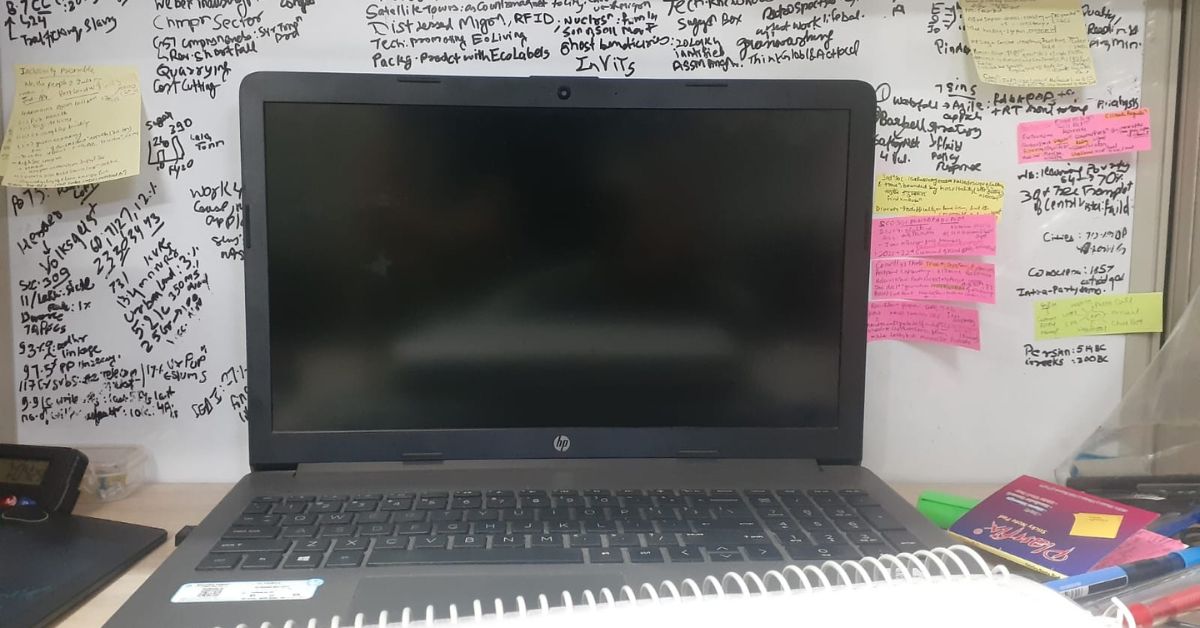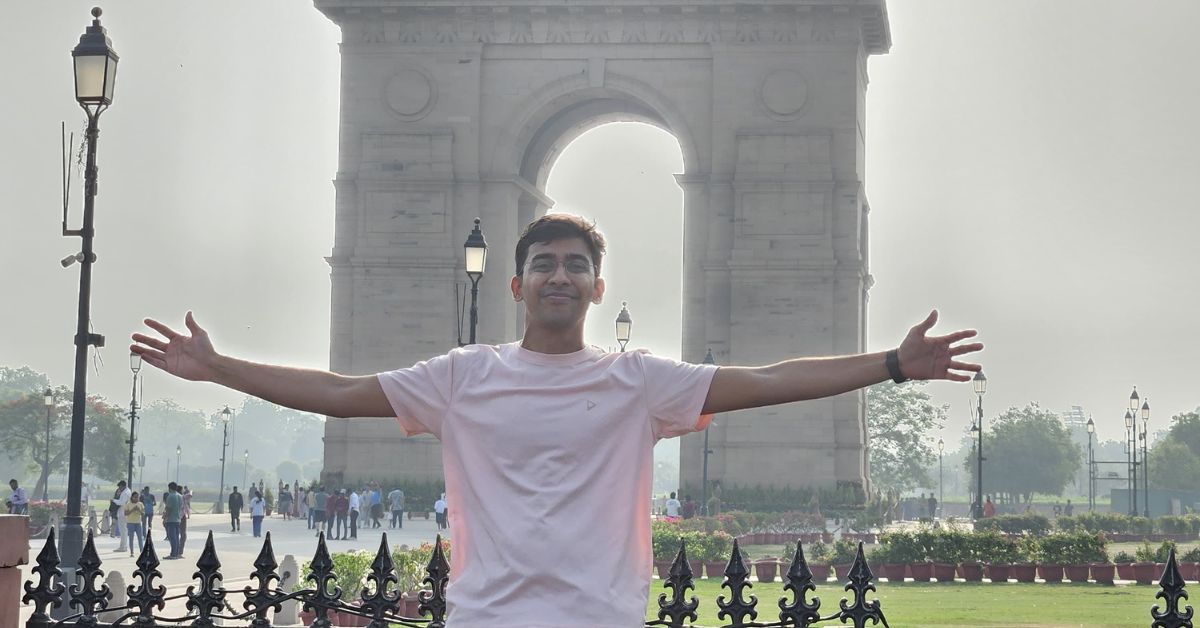Failed 3 Times, Then Cracked It: How This Topper Changed His UPSC Game With PSIR
When Ayush Jain saw his name in the UPSC Civil Services 2024 final list, he was flooded with happiness and relief. After four years of relentless effort, near-misses, and tough self-reflection, he had finally cracked one of India’s toughest exams, securing an All India Rank (AIR) of 344.
But his journey to this success didn’t begin with a clear goal of joining the civil services. In fact, it started with something unexpected — a delayed job offer.
A detour that changed his life
After completing his engineering degree, Ayush secured a college placement, but a delay in the onboarding process left him with unexpected free time. He used this window to explore his long-standing interests more deeply — reading newspapers, tracking international affairs, and participating in quizzes.
As he began reading NCERTs and books like Laxmikanth for Polity, he realised how closely his interests aligned with the subjects covered in the civil services exam. A mock test at a local coaching centre further validated his potential when he secured a high rank, giving him the confidence to take the plunge into UPSC preparation.
The decision to pursue UPSC, however, wasn’t immediate.
 Ayush cleared the UPSC CSE securing an All India Rank (AIR) of 344.
Ayush cleared the UPSC CSE securing an All India Rank (AIR) of 344.
Hailing from the Agar-Malwa district in Madhya Pradesh, Ayush first heard about the exam during college. He recalls being inspired by civil servants who visited the campus and shared their journeys. “Their stories left a lasting impression,” he says.
Still, the thought of attempting UPSC remained distant.
“I never considered it seriously during graduation. I hadn’t dared to dream of a career in the civil services. But my mock test results gave me the confidence to give it a shot.”
Even with a promising start, Ayush’s journey was far from easy. While he consistently cleared the preliminary exams, the mains posed a tougher challenge. “There were fluctuations in my scores — especially between ethics and optional papers. I’ve missed clearing Mains by 11 marks, and once by just three. Each attempt felt like I was almost there, yet not quite. It was emotionally exhausting,” he admits.
What kept him going was a mix of reflection and resilience.
“Reassessment and perseverance were crucial. The key was not giving up, even when I saw peers moving ahead in life.”
After four attempts, Ayush finally refined his strategy and cleared the exam. In the recently announced UPSC CSE 2024 results, he secured an All India Rank (AIR) of 344 and is expected to join the Indian Revenue Services – Income Tax.
Choosing PSIR: a strategic choice
One of the most crucial decisions in Ayush’s UPSC journey was choosing his optional subject — a dilemma that took nearly a month to resolve before he finally settled on Political Science and International Relations (PSIR).
“Your optional should be something you don’t get tired of,” he explains. “I had a natural interest in politics and international affairs — topics I could study all day without feeling fatigued.”
 Ayush with his family members before he headed into the interview round.
Ayush with his family members before he headed into the interview round.
PSIR also offered a strategic advantage, he notes, due to its strong overlap with the General Studies papers, particularly GS2 (Polity and Governance) and GS4 (Ethics, Integrity, and Aptitude). “This overlap gave me an edge in integrating and applying concepts across different sections of the exam,” he adds.
Beyond exam preparation, Ayush says the subject helped him build a broader worldview — deepening his understanding of the state, society, and diplomacy, all of which are vital to a civil servant’s role.
In his fourth and successful attempt, Ayush chose PSIR as his optional and scored 270 out of 500.
5 winning tips for UPSC aspirants
Based on years of trial and error, Ayush shares his hard-earned strategies, especially for those choosing PSIR:
1. Start early with optional
“Don’t wait to finish GS before starting optional. Begin both together to build comfort and allow time for deeper revision,” he advises.
2. Make notes that shrink with time
Begin with bulky study materials and gradually condense them into concise notes.
“By the end, my notes were sticky-note-sized. I had five keywords per topic — enough to recall full answers,” he says, adding that it can only be possible after you have revised bulky material at least thrice.
 Ayush’s study table.
Ayush’s study table.
Ensure your notes are concise for quick revision but comprehensive enough to cover key topics. “Focus on key points, keywords, and core theories that help you recall entire concepts quickly,” he advises.
3. Link current affairs to concepts
PSIR is dynamic, so update your notes with current affairs related to political and international relations.
Apart from newspapers, follow online platforms such as ORF (Observer Research Foundation), ICWA (Indian Council of World Affairs), and IDSA (Institute for Defence Studies and Analysis) and foreign policy journalists for the latest information.
 Beyond exam preparation, Ayush says the subject helped him deepen his understanding of the state, society, and diplomacy.
Beyond exam preparation, Ayush says the subject helped him deepen his understanding of the state, society, and diplomacy.
“Dedicate a set time each week to go through bookmarked resources, supplementing your notes with ongoing events. For instance, I’d take out half an hour in a week to check for the latest updates that I could integrate into my notes,” he says.
4. Master the ‘10 markers’ first
In his initial attempts, Ayush focused more on the 15 and 20-mark questions, tackling them first and leaving the compulsory 10-mark questions for later. This affected the quality of his shorter answers and likely impacted his overall score.
Learning from this, he revised his strategy to prioritise the 10-mark questions. By ensuring high-quality responses early on, he was able to secure better marks without compromising on content. “This shift helped me maintain balanced quality across all answer types,” he says.
5. Begin answer-writing early
Don’t wait till you’re “fully prepared” to write answers. “I was initially terrified of writing answers,” Ayush admits.
“Start with sectional tests as soon as you finish a topic,” he shares, adding, “Starting early builds confidence and helps you develop structured, high-quality responses for the actual exam.”
All images courtesy: Ayush Jain
News